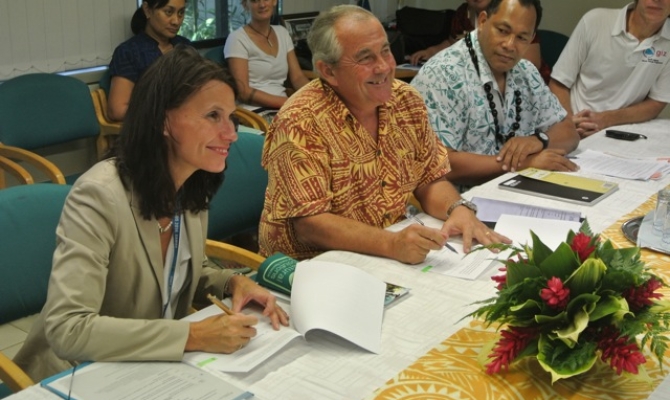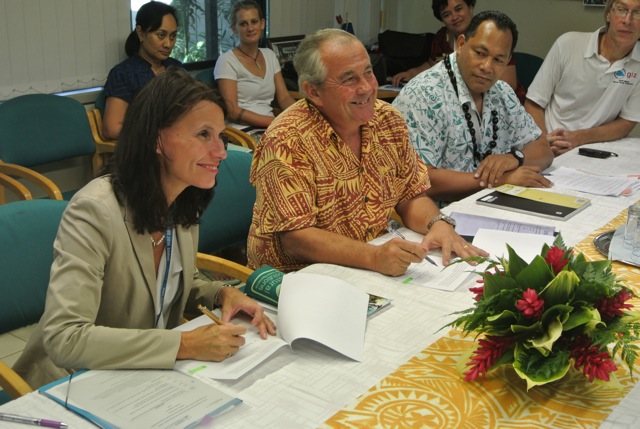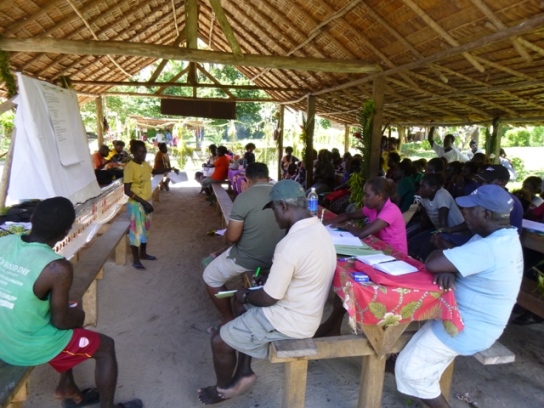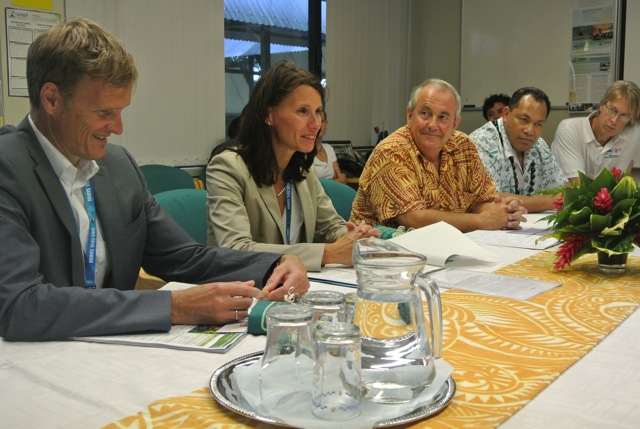
Island and Ocean Ecosystems

31 August 2014, Apia, Samoa - A 5-year, €5 million project titled 'Natural Solutions to Climate Change in the Pacific Islands Region: Implementing Ecosystem-based Adaption', has been signed on the cusp of the 3rd International Conference of Small Island Developing States.
The project was signed between the Secretariat of the Pacific Regional Environment Programme (SPREP) and the German Federal Ministry of the Environment, Nature Conservation, Building and Nuclear Safety (BMUB).
Known as Pacific Ecosystem-based Adaptation to Climate Change (PEBACC) Project, the project will strengthen Ecosystem based Adaptation (EbA) through activities in Fiji, Solomon Islands and Vanuatu as a key measure of adapting to and building resilience to climate change.

"The 'natural solutions' approach to enhancing Pacific islands' resilience to climate change impacts is a key component of SPREP's platform in helping its 21 Pacific island countries and territories adapt to climate change," said Mr. David Sheppard, Director-General of SPREP.
"To promote this we are implementing a 2-year Campaign in the region: 'Natural Solutions for Island Resilience'. We thank the German Government for its partnership and for its confidence in SPREP's capacity to plan and implement this important Ecosystem-based Adaptation to climate change project."
According to Parliamentary State Secretary Schwarzelühr-Sutter from the German Federal Ministry of Environment, Nature Conservation, Building and Nuclear Safety "Climate change is a global challenge which only by continuing and extending partnerships can be addressed effectively."
She continued by saying, "I am thus very delighted to have signed on behalf of the German Government the project agreement with SPREP to initiate action tailored specifically to Pacific islands. It represents an important contribution in our joint efforts to address and manage the challenges posed by climate change and it will be implemented by a competent and strong partner in close collaboration with local stakeholders and communities."
The project will end in 2019 and will support a range of interventions led by SPREP working with national partners and communities in the three countries.
Pacific Islands have high biodiversity values with reliance on natural resources for sustainable livelihoods. Non-climate change threats and impacts also continue to weaken the capacity of communities and governments to implement resilient approaches to climate change adaptation. Pacific Island countries are implementing climate change adaptation programmes but few explicitly include ecosystem approaches in their implementation.

This project will build on EbA work currently being undertaken by SPREP in the Solomon Islands through a USAID-funded project in Choiseul Province. This work is being implemented in collaboration with GIZ, SPC and other partners under the Choiseul Integrated Climate Change Programme (CHICCHAP), which has become a model for implementing a programmatic approach to CCA in the region. At the same time, the BMUB has promoted Ecosystem-based Adaptation (EbA) as an important approach within the field of adaptation to Climate Change.
"We look forward to a productive relationship with the German Federal Ministry of the Environment, Nature Conservation, Building and Nuclear Safety (BMUB) in the implementation of this project and hopefully beyond," said Mr. Sheppard.
The project will support building capacity at national, sub-regional and local levels to identify non-climate change threats and ecosystem services that are vital for long term environmental and social resilience to climate change and developmental sustainability at national, provincial and community levels.
This project is part of the International Climate Initiative (IKI). The German Federal Ministry for the Environment, Nature Conservation, Building and Nuclear Safety (BMUB) supports this initiative on the basis of a decision adopted by the German Bundestag.'
The Secretariat of the Pacific Regional Environment Programme (SPREP) is working with partners towards successful implementation of this project.